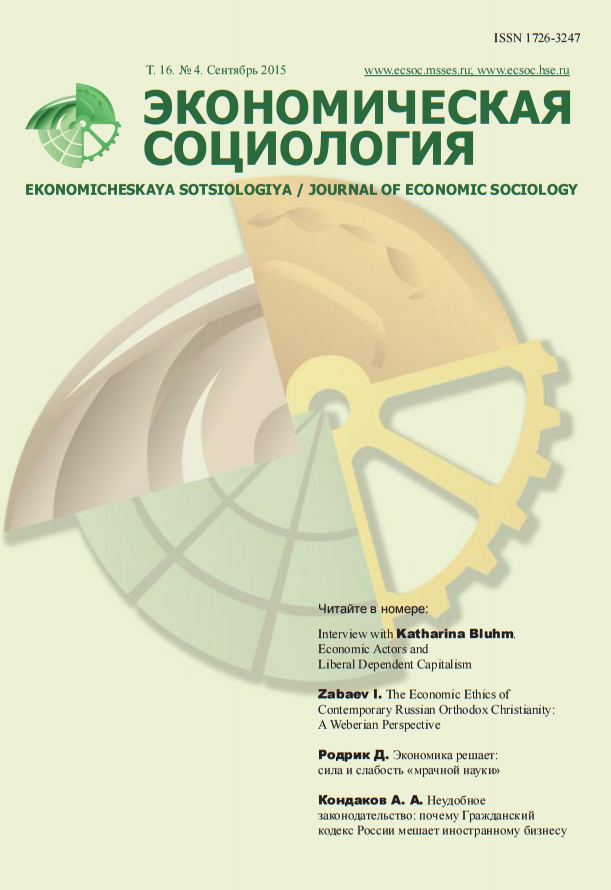The Problem of Trust in a Situation of Stakeholder Risk Concern
Abstract
The article analyzes managerial practices in creating trust in a company from the perspective of stakeholders when they are concerned about potential negative effects of the company’s actions. The purpose of the study is to determine managerial practices that undermine trust in the company by the stakeholders in a situation of risk concern, to explore why this happens and to develop practical implications for the formation of trust in a company under such situations. Four approaches to trust theory — a rational choice under risk, an act of faith, a psychological condition and a moral attitude — form the theoretical basis of the study. Stakeholder risk concern is examined by drawing on the example of the industrial development of the Arctic by the Gazprom group of companies (Gazprom Neft, Gazprom Neft Shelf, Gazprom). The research examines the position of environmental NGOs, Russian Bird Conservation Union, WWF Russia, Greenpeace Russia and Bellona-Murmansk. Data include press releases of these environmental organizations and other archival documents in which representatives of the environmental organizations express their concerns about the actions of the Gazprom group of companies in the development of the Prirazlomnoe oil field. The author identifies seven managerial practices that may seem reasonable for managers but undermine trust in the company and increase stakeholder concern. The author carefully discusses why these practices are not helpful in building trust in a company. Based on this analysis, the author draws conclusions regarding a possible base for trust in a company by stakeholders in a situation of risk concern.













